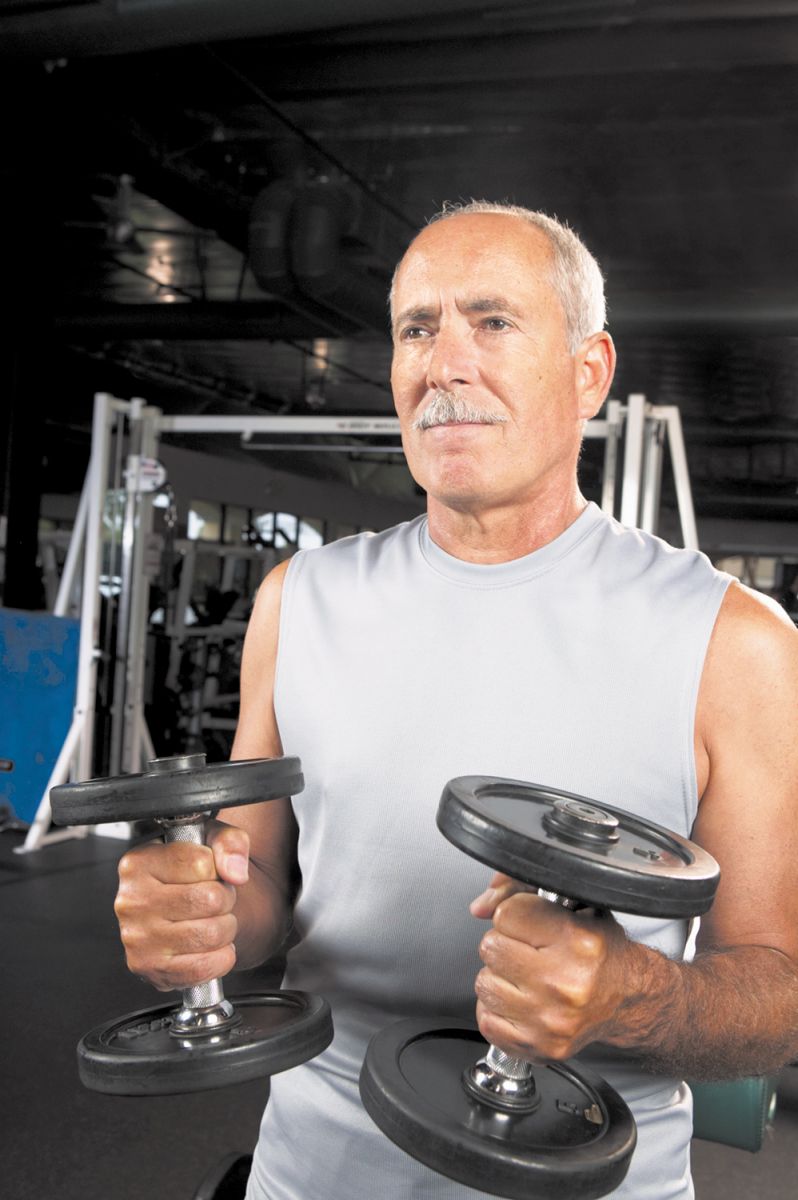Advice to the Aging on Weight Control
"It may be imperceptible year to year, but compare the amount of muscle mass with the average 80-year-old to the average 20-year-old and it becomes more apparent. The greater the amount of muscle mass we have, the greater our resting metabolic rate."
"In general, the average 80-year-old will move less in small and big ways throughout the day compared to the average 20-year-old. And exercise, separate from daily activity, probably declines, although that only affects in a large way the smaller proportion of people who exercise regularly."
"Weight gain seems to affect men and women similarly. So, after 20 or 30 years, [adding a pound or more every year] it all adds up. During menopause weight gain [both men and women] is about the same. But [in women] weight shifts more toward the abdominal region, so it appears to be greater weight gain. The same thing happens in men -- greater weight gain with age in the abdominal region -- but it occurs more gradually."
Donald D. Hensrud, associate professor, preventive medicine and nutrition, Mayo Clinic College of Medicine
"Many of my patients admit to moving less overall as they get older, and the first thing I recommend for weight loss is to add weight training -- at least two to three days per week -- to slow down sarcopenia [age-related muscle loss], along with an additional day or two of cardiovascular exercise."
"On top of this, I encourage my patients to meet the 10,000 steps per day goal, so they are taking walks throughout the day or doing house or yard work versus getting home from the gym and sitting all day. This will also impact metabolic rate."
"I encourage my patients to work on portion control and eating a higher volume of lower calorie foods, like fresh fruits and vegetables, since they will fill us up with less total calories and are important for aging, vitality and disease prevention."
Jessica Murgueytio, dietitian, Bethesda Medical Associates

As people grow older there is a gradual loss of muscle mass and that alone accounts for the fact that weight is gained by people as they age. There is a loss of one percent annually of muscle mass with aging, causing a decrease in basal metabolic rate (the process of burning calories while at rest); the lower the metabolic rate of an individual the fewer calories are burnt. Added to which there is a tendency as people age to move about less; spontaneous physical action is reduced with advancing age; scheduled exercise aside.
And then there are hormone changes, with testosterone declines in men and estrogen and progesterone in women, all of which can also have a weight effect. There is a common misconception that post-menopausal women will tend to gain more weight than do men, but the truth is that both sexes gain weight, it's just that weight redistributes more quickly in women than it does in men, ending up all too often in the abdomen.
A recent study suggests that lipid turnover in adipose tissue (where fat is stored in the body) tends to decrease during the process of aging; which is to say fat removal from fat cells slows, and this contributes as well to gaining weight. In a research project, health scientists studied fat cells in 54 men and women throughout a thirteen-year period. All the test subjects indicated lipid turnover rates in decline. Indicating processes in fat tissue "regulate changes in body weight during aging in a way that is independent of other factors", according to Peter Arner of the Karolinska Institute in Sweden.

Experts in the field of medical science recommend that people continue regular exercising, that they monitor their calorie intake, lift weights and move steadily through the day and make an effort to avoid sitting as much as possible. "All types of physical activity burn calories and are important", cautioned Dr. Hensrud. "Resistance training (weightlifting) helps in the loss of abdominal fat. Exercise is the most efficient way to burn calories." In particular, high-intensity interval training HIIT); short bursts of intense exercise interspersed with brief recovery periods.
Weight gain has been seen to stabilize after people reach their mid-60s, partly as a reflection of people choosing to eat less when they become older, according to Dr. Hensrud. Among people older than 60, obesity rates are at about 41 percent in comparison with close to 43 percent for people ages 40 to 59, and 36 percent for people aged 20 to 36, according to the Centres for Disease Control. "Although physical activity probably continues to decline throughout a life span, energy (calorie) intake also tends to decline in the elderly", he noted.

Labels: Aging, Exercise, Health, Research, Weight Gain

0 Comments:
Post a Comment
<< Home